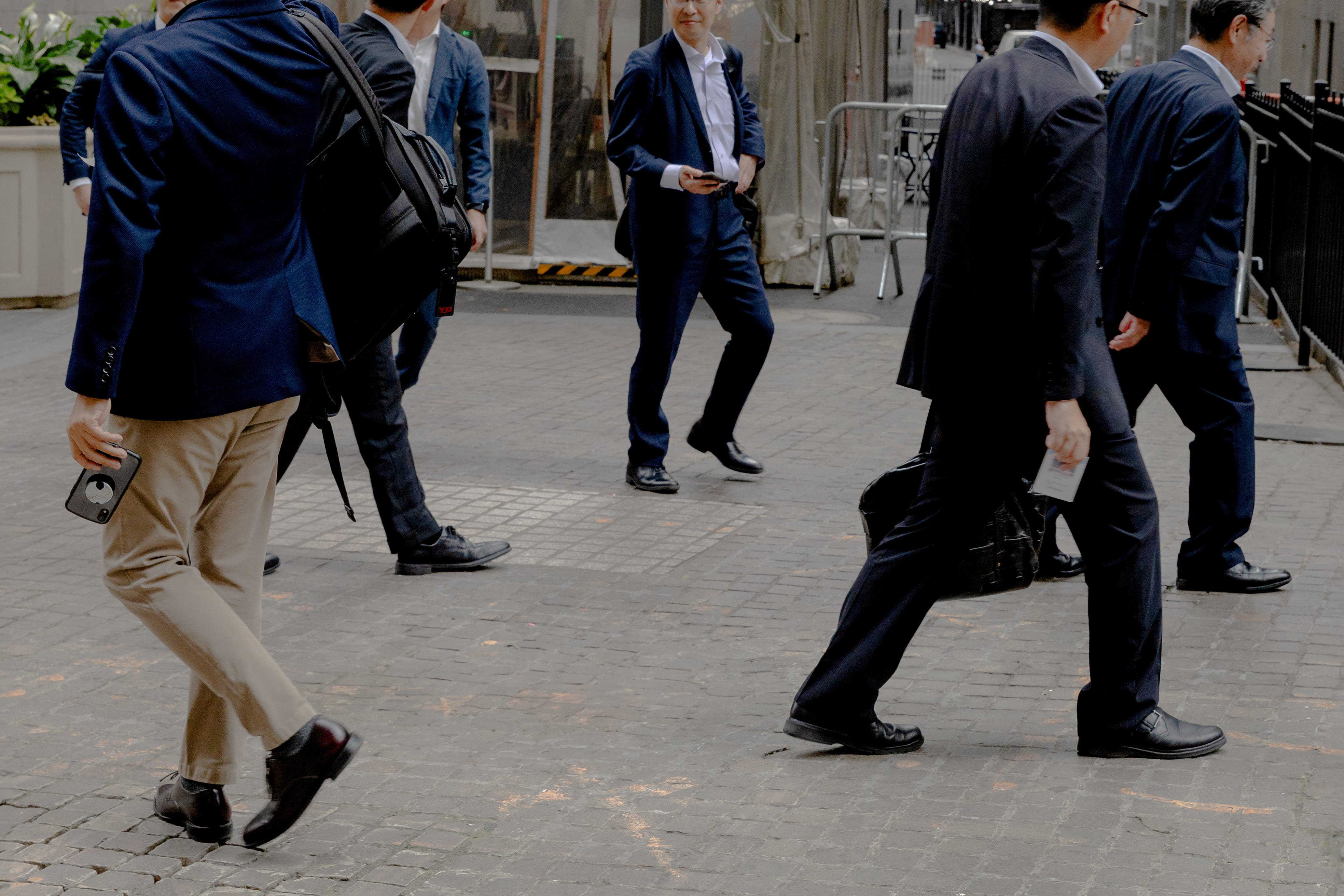
BI/Momo Takahashi
- CEOs of big US companies are more confident their AI investments will pay off, a KPMG survey found.
- Nearly 70% of CEOs expect AI returns within one to three years, compared with 21% of CEOs in 2024.
- The rise of AI has many leaders thinking about changes to corporate structures and worker training.
The only thing advancing faster than AI is the enthusiasm that many CEOs have for it.
Nearly seven in 10 chief executives expect to see returns on their AI investments within one to three years, compared with 21% who held this view in 2024, KPMG US found in a recent survey of 400 heads of large US companies.
The shift underscores that, in only a year, CEOs’ confidence in investing in AI has swung “completely to the other extreme,” Tim Walsh, the company’s US chair and CEO, told Business Insider.
About two in 10 leaders now expect to see returns in just six months to a year, up from 1% last year. The latest survey took place from early August to mid-September.
That growing anticipation over what AI can do is already reshaping how companies think about their business, Walsh said.

Courtesy KPMG US
“What I am confident in is that every single layer in that labor stack — and that regardless of what industry you’re in — is being disrupted,” he said.
The big question, Walsh added, is how fast that change will unfold.
The ‘hourglass’ look
What the rise of AI — and especially the spread of AI agents that can take on human work — will mean for corporate structures remains unclear, he said.
Almost seven in 10 CEOs in the survey said they expect their organizations to start looking more like an hourglass — larger at the top and bottom, with a thinner middle. It wouldn’t be atypical with new technology to see the mid-skill level be disrupted first, Walsh said. Yet, it would mark a shift from the traditional pyramid, where most workers sit closer to the base.
He said it’s too soon to say how a diet rich in AI might reshape companies. “Everyone said the pyramid has been going away for years and years and years, and the pyramid is still there,” Walsh said.
Even so, he said it’s possible that the look of many organizations could eventually shift.
“To what extent is the question,” Walsh said, adding, “That is the conversation I’m having with CEOs. We do not know. Nobody knows yet.”
Many leaders, Walsh said, are still trying to understand what kinds of agents and technologies they can integrate, and what the ripple effects will be once they do.
Walsh said a goal for “good leaders” — and one he embraces — is to ensure that when AI takes over certain tasks, the company helps affected workers develop new skills and move into new roles.
“It’s not a get rid of — it is a retrain exercise,” he said.
Walsh said the rapid pace of change is fueling concerns that AI could take people’s jobs.
“There’s a lot of apprehension out there in the way people are speaking about it,” he said, referring to the impact of AI on employment. Ultimately, Walsh said, he expects that “there will be more opportunities,” not fewer, for human workers.
A focus on uncertainty and change
Walsh, who took on the top job at KPMG US in July, said that many of his conversations with a range of executives focus on uncertainty: how AI will actually reshape companies and when it will happen. The reason, he said, is that the technology “hasn’t plateaued” — it’s still evolving and being woven into business operations.
Some chiefs nevertheless expect that AI agents to result in big changes in how their businesses operate. In the survey, 86% of CEOs said agents would be “embedded team members” next year. About one-third of respondents said they planned to cut jobs in some areas in the next two to five years because of AI.
Having AI agents on teams will mean processes get done differently, Walsh said. Often, he said, the technology will still require human oversight and management.
The result, he said, is that clients thinking about adding agents need to train employees in something that, a year ago, many companies “would never even have thought possible.”
Moving faster
Tech isn’t the only challenge for US leaders, Walsh added. Many are scrambling to remake supply chains to adapt to tariffs.
Nearly nine in 10 said tariffs would significantly affect their business performance and operations during the next three years. Nearly as many said they plan to boost prices on goods and services, as needed, to offset the impact.
More broadly, Walsh said CEOs are focused on moving faster to keep up with a relentless pace of change, as well as enormous disruption and uncertainty.
He said his conversations with fellow CEOs often involve how to move forward in an environment “where uncertainty and change” will be the norm.
Read the original article on Business Insider
The post CEOs are all in on AI — even if no one knows what comes next appeared first on Business Insider.




